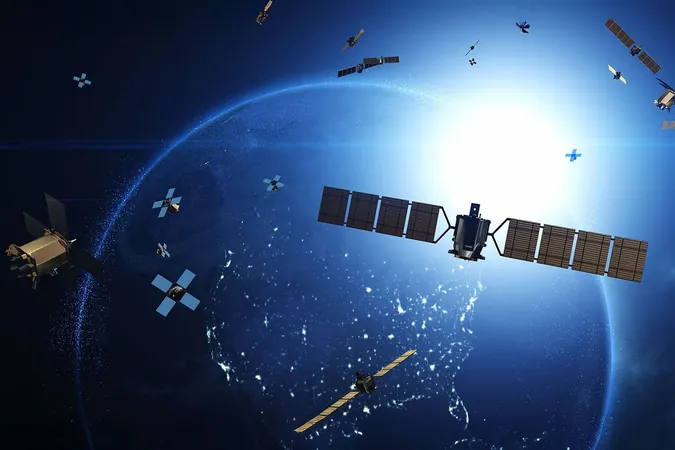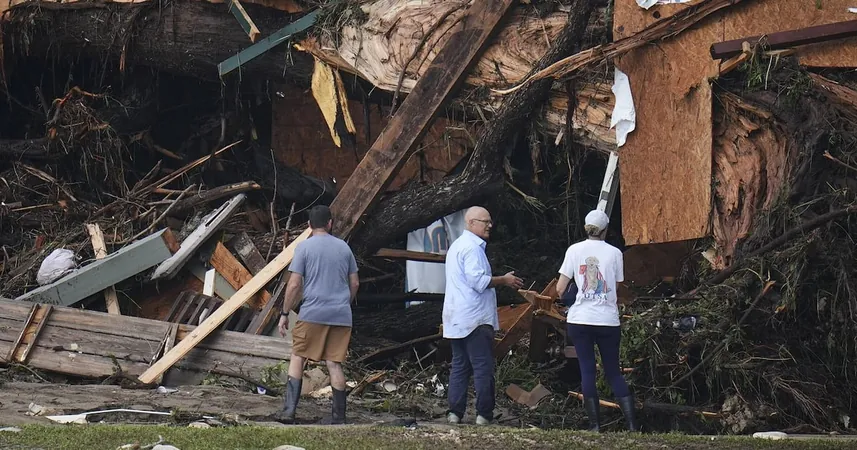
Experts Urge UN Action for Space Junk Cleanup Mirroring Ocean Conservation Strategies
2025-01-11
Author: Benjamin
Humans often envision our planet as a beautiful blue marble suspended in a vast, empty cosmos, illuminated by twinkling stars. However, the reality is that our ventures into space have led to significant pollution in the form of space debris, commonly referred to as space junk. This burgeoning problem poses a potential threat to the future of space travel as the number of satellites continues to rise alongside our ambitions to explore the far reaches of our solar system. If unaddressed, space junk could ground space missions indefinitely. So, what solutions are being proposed?
A Call to Action
A team of international scientists from various disciplines, including satellite technology and ocean conservation, recently published a comprehensive review in the journal One Earth. They propose that strategies used in ocean conservation be adapted to tackle the challenge of space debris.
The Risks of Space Junk
The risks associated with space junk extend beyond merely obstructing space pathways; they endanger the safety of astronauts and can disrupt crucial infrastructure on Earth, impacting GPS systems, mobile phone communication, and weather forecasting. Acknowledging this dire situation, the researchers advocate for robust measures to manage and reduce space debris effectively. Their recommendations include holding companies financially accountable for the debris they produce, implementing strict international regulations, incentivizing reductions in orbital waste, and fostering global scientific collaboration.
“The accumulation of debris in these vital orbits increases the risk of collisions with operational spacecraft and threatens the sustainability of these critical zones,” the authors state. They emphasize the necessity of treating the orbital environment as a limited resource that demands protection and careful stewardship.
UN's Role
Crucially, the researchers are calling for the United Nations to take decisive action by establishing a new sustainable development goal focused on space. Currently, there are 17 such goals aimed at addressing global challenges like poverty eradication and environmental protection, and the scientists suggest an 18th goal dedicated to preserving the integrity of Earth’s orbit and curtailing the influx of space junk.
Commonalities Between Cleanup Efforts
The parallels between ocean and orbital cleanup efforts may not be immediately apparent, yet the researchers argue that both share a fundamental issue: the increasing presence of debris in our shared environments. “While marine and orbital settings differ significantly in their physical properties, chemistry, and biology, they are confronted with a commonality: the growing accumulation of waste within their expanses,” the authors noted.
Conclusion
As the problem of space debris escalates, the call for innovative and effective solutions becomes ever more urgent. By drawing inspiration from the methods used in ocean conservation, we can hope to secure a cleaner and safer future not only for our oceans but also for the great expanse of space that surrounds our planet. The message is clear: it's time for global leaders to recognize that action is needed before our orbits become as cluttered as the ocean floor.









 Brasil (PT)
Brasil (PT)
 Canada (EN)
Canada (EN)
 Chile (ES)
Chile (ES)
 Česko (CS)
Česko (CS)
 대한민국 (KO)
대한민국 (KO)
 España (ES)
España (ES)
 France (FR)
France (FR)
 Hong Kong (EN)
Hong Kong (EN)
 Italia (IT)
Italia (IT)
 日本 (JA)
日本 (JA)
 Magyarország (HU)
Magyarország (HU)
 Norge (NO)
Norge (NO)
 Polska (PL)
Polska (PL)
 Schweiz (DE)
Schweiz (DE)
 Singapore (EN)
Singapore (EN)
 Sverige (SV)
Sverige (SV)
 Suomi (FI)
Suomi (FI)
 Türkiye (TR)
Türkiye (TR)
 الإمارات العربية المتحدة (AR)
الإمارات العربية المتحدة (AR)